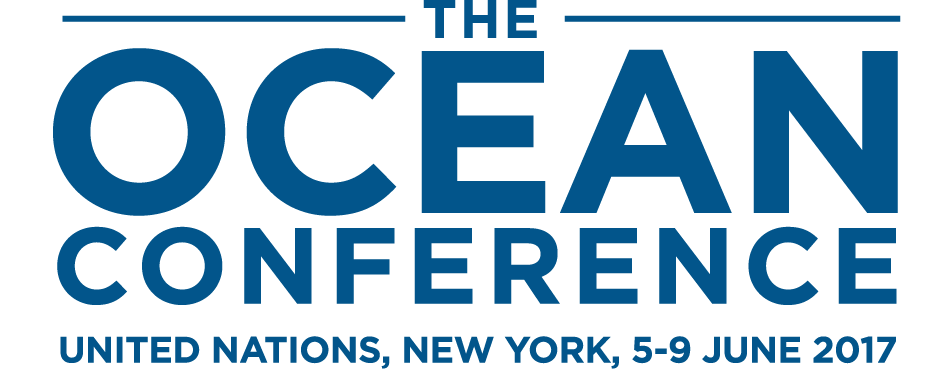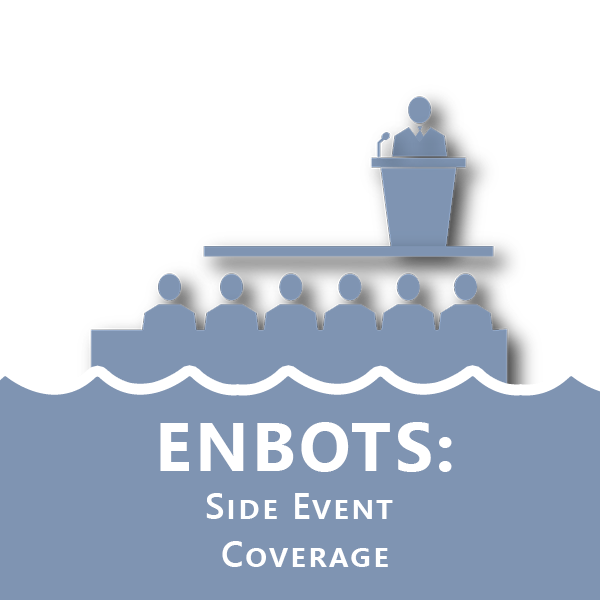Daily report for 24 September 2017
1st Meeting of the Conference of the Parties to the Minamata Convention on Mercury (COP1)
The first Conference of the Parties (COP1) to the Minamata Convention on Mercury, under the theme “Make Mercury History,” began on Sunday, 24 September and is scheduled to conclude on Friday, 29 September 2017, in Geneva, Switzerland
Delegates met in an opening plenary to address organizational matters, matters for action for COP1, and matters stipulated by the Convention for action by the COP.
OPENING CEREMONY
Following a traditional Swiss music interlude, Jacob Duer, Principal Coordinator, interim Minamata Secretariat, opened the Conference, congratulating the 81 countries which have ratified the Convention.
Marc Chardonnens, Director, Federal Office for the Environment, Switzerland, indicated that the COP is a historic moment to reduce the mercury risks affecting millions of people, and urged all countries to continue to implement the Convention. Emphasizing Switzerland’s commitment to reduce mercury pollution, he urged integrating the Minamata Convention into the Basel, Rotterdam and Stockholm conventions “family.”
Citing examples of several individuals who have suffered from mercury exposure, Ibrahim Thiaw, Deputy Executive Director, UN Environment, said that the Convention is a building block for the 2030 Agenda for Sustainable Development. He underscored that the Convention would help countries protect human rights and the environment by improving waste management and switching to cleaner energy and smarter chemicals.
PLENARY
ORGANIZATIONAL MATTERS: Election of Officers: Thiaw introduced the rules of procedure (UNEP/MC/COP.1/3).
Delegates adopted rule 22 related to the appointment of officers with no objections. Thiaw then invited nominations for the COP1 Bureau. Japan, supported by Uruguay and Zambia, proposed, and delegates agreed, to nominate Marc Chardonnens, Switzerland, as COP1 President. Regions then nominated nine Vice-Presidents: Liudmila Marduhaeva, Moldova, and Karel Blaha, Czech Republic, for the Central and Eastern Europe (CEE) Group; Gregory Bailey, Antigua and Barbuda, and César Murillo Juárez, Mexico, for the Latin America and Caribbean Group (GRULAC); Nina Cromnier, Sweden, for the Western Europe and Others Group (WEOG); David Kapindula, Zambia, serving also as rapporteur, and Serge Molly Allo’o Allo’o, Gabon, for the African Group; and Mick Saito, Japan, and Mohammed Khashashneh, Jordan, for the Asia and Pacific Group.
Rules of Procedure: The interim Secretariat noted that, during the INC process, the content of the rules of procedure had been provisionally agreed, with the exception of bracketed text related to voting, and that additional views on Regional Economic Integrated Organizations (REIOs) were raised at INC7.
COP1 President Chardonnens suggested new text for rule 45.3 (substantive or procedural issues) that: allows the COP President to rule if an issue is procedural or substantive and provides for appeals immediately after the decision, which could overturn the COP President’s ruling with a majority of parties present and voting. IRAN, supported by INDIA, called for further discussion.
Parties adopted the rules of procedure containing the bracketed text.
The US stated its understanding that a REIO can vote on behalf of its member states that are eligible and present in the room. The EU stated that the Convention is clear on this matter as stated in article 28.2 (a REIO shall exercise right to vote with number of votes equal to member states that are party to the Convention). The RUSSIAN FEDERATION called for deliberations on REIOs and voting rules, lamenting that his country had not been given the opportunity to speak before the adoption of the rules of procedure. After considerable discussion, the legal advisor clarified that only parties may participate in decision making.
The RUSSIAN FEDERATION lamented that this undermines the Convention’s spirit, and stressed that all countries should be considered equally.
COP1 President Chardonnens underlined that the COP will be conducted in an inclusive manner and that the Presidency will conduct informal consultations on bracketed text.
Adoption of the agenda: Parties adopted the agenda (UNEP/MC/COP.1/1 and Add.1).
Appointment of credentials committee: Parties appointed a credential committee, chaired by Karel Blaha, Czech Republic.
Organization of work: Parties adopted the organization of work as set out in the scenario note (UNEP/MC/COP.1/2), and agreed to establish a Committee of the Whole (COW) chaired by Fernando Lugris.
GENERAL STATEMENTS: GRULAC underscored that effective implementation is of “paramount importance” to reduce mercury risks, stressing the importance of establishing the specific international programme (SIP) to support capacity building and technical assistance.
The AFRICAN GROUP supported an annual reporting process, and partial integration of the BRS and Minamata Conventions secretariats with a separate mercury branch. She also highlighted the need for transparent and accountable governance structures for the SIP to ensure adequate and easy access to financial resources.
The EU, the Russian Federation for the CEE, JAPAN, INDONESIA, IRAN, PALESTINE, NIGERIA and INDIA congratulated the INC for its work and efforts made by countries to ratify the Convention, and expressed commitment to implementing the Convention.
The EU welcomed COP1 as the beginning of the journey in dealing with the mercury problem and noted support for adopting provisional guidance and forms before considering other substantive matters. JAPAN highlighted the need for the SIP to become operational as soon as possible and the importance of environmentally-sound management (ESM) of mercury and mercury-containing wastes, and underscored the need for assistance to non-parties experiencing difficulties in ratifying the Convention.
IRAN highlighted that the synergistic approach “is negative to the progress” of implementing the Convention.
Shinobu Sakamoto, for International POPs Elimination Network (IPEN) and ZERO MERCURY WORKING GROUP (ZMWG), underscored that Minamata disease is not yet over, and challenged delegates to protect women and children from mercury exposure. WORLD ALLIANCE FOR MERCURY FREE DENTISTRY highlighted the phaseout of amalgam use in children as vital.
Rolph Payet, Executive Secretary of the BRS SECRETARIAT outlined areas of cooperation include waste, interim storage, BAT/BEP, legal matters, financial resources and support and participation of the regional centers.
REPORT ON THE ACHIEVEMENTS OF THE INC: Fernando Lugris, Uruguay, INC Chair, reported the achievements of the Committee (UNEP/MC/COP.1/4), highlighting that the INC met its goals set in 2009 by finishing the negotiations in 2013 with a balanced text that requires an implementation and evaluation committee and an innovative financial mechanism, and indicating that the COW looked forward to resolving the remaining issues throughout this week.
MATTERS FOR ACTION BY COP1: Matters Stipulated under the Convention: Supply Sources and Trade: COP1 President Chardonnens introduced the draft guidance (UNEP/MC/COP.1/5). Parties adopted the guidance and decision.
Noting their request for the floor, IRAN called for further defining mercury stocks exceeding 50Mt, and supply sources of more than 10Mt/year, among other technical issues. President Chardonnens suggested, and IRAN agreed, that their comments will be reflected in the meeting report.
Certification: The COP adopted the required content of the certification required for the import of mercury from non-parties in accordance with paragraphs 6 (b) and 8 of article 3 (UNEP/MC/COP.1/6).
Emissions: COP President Chardonnens introduced the guidance (UNEP/MC/COP.1/7). MEXICO and THAILAND noted the need for support for the implementation of the guidance. SRI LANKA said it would forward a conference room paper (CRP) to include household extraction of gold from waste in the Convention.
IRAN suggested that two paragraphs from the guidance be duplicated in the draft decision, namely that: some counter measures in the guidance may not be applicable in all contexts; and the guidance is a dynamic document to be revised based on implementation experience. URUGUAY suggested the draft decision could be discussed in the COW. Parties adopted the draft guidance and forwarded the draft decision to the COW.
BELARUS, COLOMBIA, CHILE and GHANA requested procedural clarifications, including on the value of adopting the guidance document, but not the draft decision. COP1 President Chardonnens clarified that the guidance had been adopted and the decision would be discussed by the COW.
Financial Mechanism: Recalling discussions at INC7, the EU highlighted its CRP about the decision on guidance to the GEF (UNEP/MC/COP1/CRP.3).
BRAZIL drew attention to two CRPs submitted by GRULAC on the SIP and financial rules respectively, highlighting the proposal that the SIP should be hosted by the Minamata Convention secretariat, governed by a SIP committee and last for an unlimited period.
Emphasizing that the Convention’s financial mechanism includes two elements (the GEF and the SIP), JAMAICA said she could not accept the financial mechanism without both elements being agreed.
MATTERS STIPULATED BY THE CONFERENCE OF PLENIPOTENTIARIES: Draft Memorandum of Understanding (MoU) between the COP and the GEF Council: Noting agreement at INC7, the EU, supported by JAPAN but opposed by IRAN, proposed adoption of the draft MoU between the Minamata COP and the GEF Council (UNEP/MC/COP.1/15). IRAN proposed a textual amendment to the draft MoU. Seeing no consensus, President Chardonnens suggested deferring the issue to the COW.
The US asked if the MoU had been adopted, and moved the decision on this matter to the COW. President Chardonnens explained, supported by IRAN, that both the MoU and the decision would be discussed in the COW.
MATTERS RECOMMENDED BY THE INC: Exemptions: The COP adopted the formats to be used in registering an exemption from the phase out dates listed in Annex A and Annex B, including the information to be provided upon registering for an exemption, and for the register of exemptions (UNEP/MC/COP.1/16).
MATTERS STIPULATED BY THE CONVENTION FOR ACTION BY THE COP: Emissions Criteria Guidance: The COP adopted the guidance in relation to mercury emissions referred to in paragraphs 9 (a) and 9 (b) of article 8 (UNEP/MC/COP.1/23).
IN THE CORRIDORS
On Sunday, the very first meeting of the Conference for the Parties to the Minamata Convention began, backdropped by the conference logo: a gold and grey fish affectionately dubbed Freddie. The mood among participants matched the historic occasion, as delegates greeted each other with warm hugs and handshakes. The “Minamata Family” has grown noticeably, with over 1200 participants expected to attend COP1, a standing-room-only opening plenary was evidence of this expansion.
Quickly following the happy reunion, many in the family started to feel the gravity of the work ahead. UN Environment Deputy Director Ibrahim Thiaw’s powerful speech reminded delegates that exposure to mercury is global, with the element present in a range of sources (from mascara to coal-fired power plants), affecting the daily lives of families and the economies of countries. Also weighing heavily on delegates was the scope of work to be completed at this conference, including the completion of the financial mechanism arrangements, a reporting system, and Secretariat arrangements.
This sense deepened as COP1 began with what one delegate deemed “growing pains” as several delegates raised their flags to ask for procedural clarifications about how decisions were to be taken, while others requested the COW to discuss items that were provisionally agreed. “We need to be able to use these guidance documents,” stressed another, noting that “to do this, everybody’s views must be heard before we adopt anything.” Leaving the venue, an optimist hoped “things start rocky so that they can become smooth.”
-->
Specific funding for coverage of the Ocean Conference - June 2017, has been provided by the
XXX, XXX, and XXX
-->
IISD Reporting Services is a division of the International Institute for Sustainable Development (IISD).
Earth Negotiations Bulletin (ENB), ENB+, and Knowledge Management for Sustainable Development
are branches within IISD Reporting Services.
© 1992-2017, IISD Reporting Services. All rights reserved.







